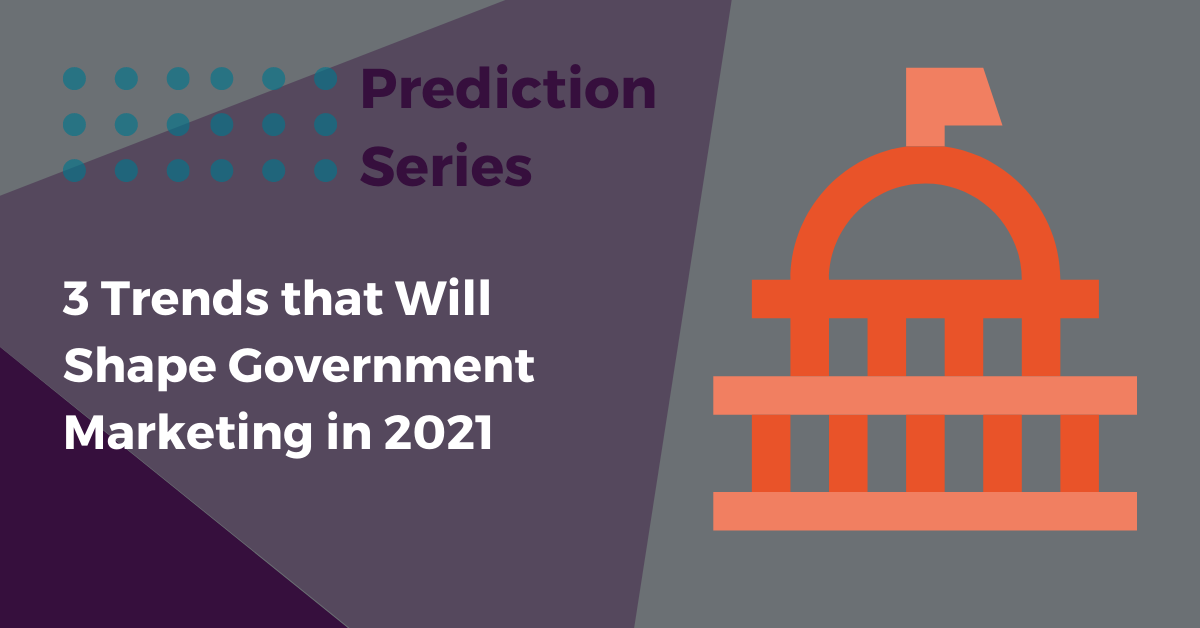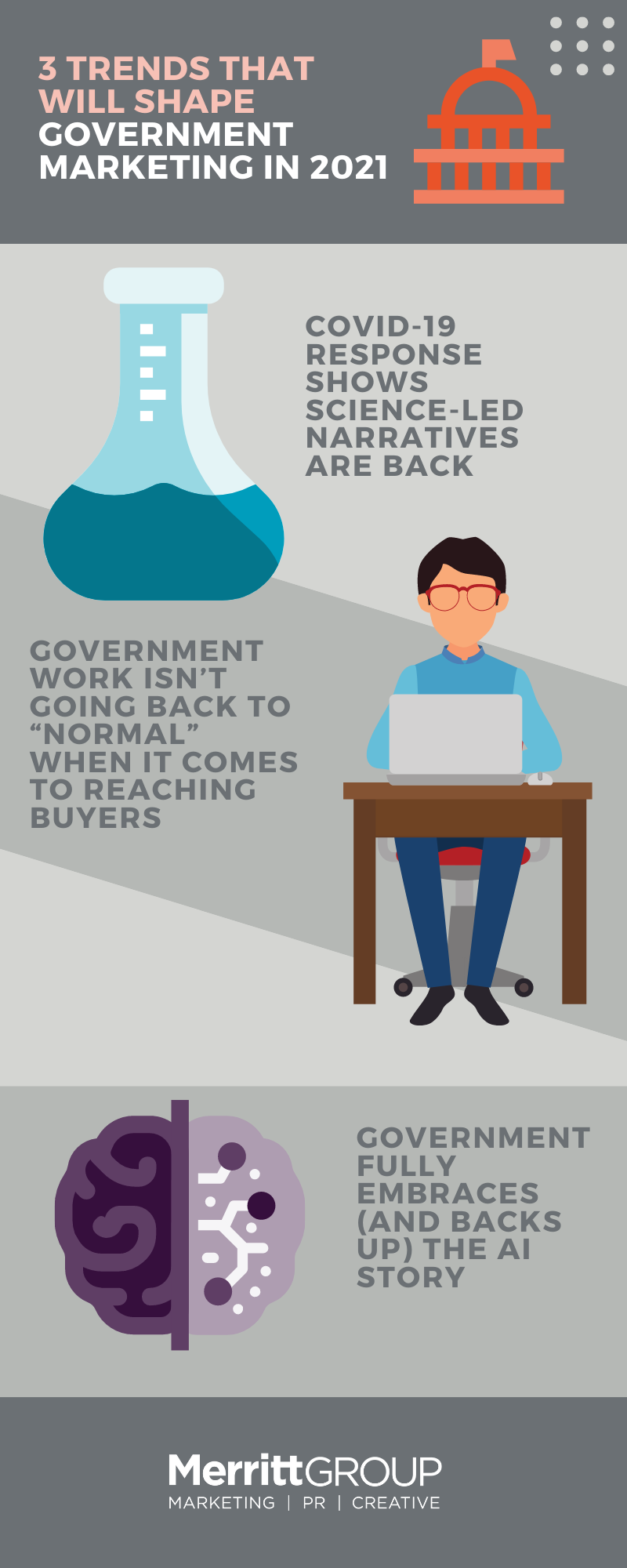
As 2020 mercifully comes to an end, we’re all stuck with the same thought: 2021 has to be better, right?
The pandemic is raging on, but there are promising signs on the vaccine front. Presidential transitions are complicated and messy, but they also tend to bring fresh thinking on how to tackle our biggest societal challenges. Technological innovation is enabling government to accomplish things it could only dream about a few years ago, and agencies’ willingness to embrace new tools is at an all-time high.
For all of these reasons I’m optimistic heading into the new year, and below are a few predictions on the major trends that will shape discussions and buying decisions across the government market in 2021.

The Biden transition team has announced a COVID-19 taskforce and a national strategy that indicates a more federal-led, science-based approach to tackling the pandemic. Areas of focus include nationwide testing, contact tracing, vaccine distribution and more consistent communication and guidance.
As more specific plans unfold there is an enormous opportunity for the private sector to help inform policy and best practices based on their areas of expertise across technology, people and processes. We’re already seeing examples of this from industry leaders like IBM CEO Arvind Krishna, who wrote an open letter to President-Elect Biden encouraging the new administration to embrace innovation across high performance computing, artificial intelligence and quantum computing in the fight against COVID-19.
2. Government work isn’t going back to “Normal” when it comes to reaching buyers
Much like the broader U.S. workforce, the government workforce isn’t going back to “normal”. Remote work was seen as a temporary necessity at the outset of the pandemic, but based on how well it’s worked, all signs point to a more flexible future. A recent study by SAIC and Market Connections found that 82 percent of federal personnel expect remote work to continue into the future, with 41 percent expecting to work remotely four to five days a week (!) compared to an average two days a week before the pandemic. Clearly there will be differences across agency and mission, but as remote work strategies shift from short term fix to long-term policy, agencies are going to need continued guidance on how to maintain security while optimizing productivity and efficiency.
For marketers, this will present opportunities for private sector voices to lend expertise around everything from protecting classified information to safely setting up physical office space to ensuring mobile workers can collaborate from anywhere.
3. 2021 will be the year government fully embraces (and backs up) the AI story
I know we’ve said it before, but this really, really feels like the year that artificial intelligence begins to transform the way government operates. There is a perfect storm brewing across policy and technology that is going to dramatically impact everything from space defense to citizen services. Congress is finalizing a National AI Strategy that clearly articulates the need for continued innovation to stay one step ahead of global adversaries including China and Russia, while acknowledging the massive challenges across workforce, ethics and R&D.
All of these areas — from algorithmic bias to upskilling — are ripe for education and storytelling, and you don’t have to be an AI company to enter the conversation. So many technology categories are critical to building the foundation for government AI to be successful, from cloud computing to analytics and 5G, and the ethical challenges might be even more complex. As government contractors and consultants consider content strategies moving into 2021, they should think deeply about how they fit into the broader AI transformation happening across government, and the unique educational perspective they can provide.
All signs point to 2021 being an improvement over 2020, mostly because we have nowhere to go but up, but also because there is serious innovation momentum happening across government. Over the past few years we’ve seen more and more global private sector leaders prioritize the U.S government market because they genuinely feel like they have ideas and technology that can make an impact, and those voices will be in very high demand over the next 12 months as we tackle some of our biggest challenges. Cheers to 2021.
Ready to supercharge your B2G outreach programs? Learn more about how our government team has the experience and expertise to help you drive leads and maximize results.



